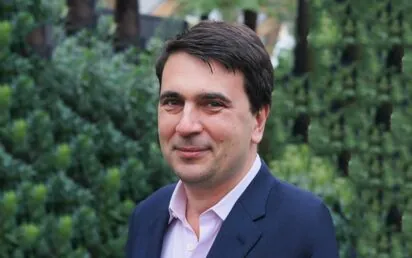There are many models around tech investment, ranging from completely hands-off to the ‘venture builder’ approach.
Dr Ilian Iliev, CEO of NetScientific Group plc, has his feet firmly planted in the latter.
“Once we’ve invested in a company, we don’t sit around,” he tells BusinessCloud. “We take a proactive position, board seats, and deep engagement: we help them build up their executive team [and potentially] collaborations with corporates.
“We do that with what we call value creation services, which is something that private equity funds have, but very few do in the venture capital space. We’ve taken the lead from PE and said, ‘these companies need a ton of help – let’s give it to them’.
“We can’t do it for free, so we charge for it… we don’t believe in the kindness of strangers, we need to be autonomous and independent ourselves.”
This support is only available to companies within NetScientific’s portfolio.
“We’re not trying to build a consultancy; rather, these are tools that we can use,” explains Iliev. “There are no perfect people, and there are no perfect businesses. We get suspicious when things look perfect on the deck!
“The IP of these companies is strong – but they go through different stages, and those stages require changes in the mixture of the team. Let’s not wait until it’s crisis time: let’s be proactive about it, do it when the company has control.”
Different model
Iliev founded EMV Capital in 2018 and became CEO of NetScientific – now listed in London for more than a decade – in 2020 when it acquired his company.
NetScientific had seen its share price fall from a high of around £20 in 2015 to 66 pence at the time of the acquisition. Today it stands around 74p.
“Part of the reason they acquired us was to bring in a team with a strong conviction investment thesis, a different business model that would take the business forward. And that’s what we’ve done,” explains Iliev.
“There is a specific sweet spot for us around IP-intensive businesses focused on B2B strategies which are pre-revenue, or getting early revenues… they’ve got their first industrial pilot, they’ve got their first sale, but they haven’t figured out the whole structure.
“We syndicate investments from private investors in our network to invest in these companies. We do that in a very proactive and intensely involved manner: as a former founder and operator myself, it’s very much not a case of ‘I’m a passive investor, give us your business plan, maybe we do, maybe we don’t…’ We work collaboratively with the management teams to help them to build their investment strategies.
“I took NetScientific from a position where they had no operational revenues in 2020 to roughly covering more than half of our costs today. We’re looking to cover our costs and to get super returns when we sell the assets.”
Martlet acquisition
NetScientific, headquartered in London, recently acquired the operational venture capital business of Cambridge-based Martlet Capital – excluding the Martlet portfolio – in a non-dilutive transaction which increased assets under management by 89% to over £100m.
“We started with £8m assets under management in 2020 and eight companies. We are now £100m+, post-balance sheet, and 70 companies. That’s an order of magnitude… a result that puts us on the map,” says Iliev.
“Martlet has a passive early investment strategy: they are good at spotting good companies when they roll off the presses in Cambridge and other universities. They can be that first check alongside angel investors… and feel stronger in the knowledge that the opportunity for follow-on investment with us is there if there is a scale of opportunity. And, if there is a problem, the troubleshooting capability too.
“We’re looking at how to combine the two. The symbiosis between the models can be transformative… when things go through our filters, at the end you end up with really special, high-potential investment opportunities that haven’t yet been seen by the rest of the market.
“It’s a lifecycle approach.”
Fund management practice
The acquisition has also paved the way for the launch of two new funds. As an FCA-registered entity – “it was a walk in the park… it just took two years!” jokes Iliev – NetScientific has launched a fund management practice.
“We have two fund entities: an EIS fund, which is growing healthily, and the Martlet Capital mandate,” he continues.
“We’re not stopping there: we’ve been building up towards our fund management practice for a long time and this is just the beginning.
“The next milestone in our journey is to get to the £200m AUM mark.”
Tourists
NetScientific’s group revenue for the year ended 31st December 2023 increased by £2m to £3.8m, while losses for the year decreased to £2.9m from £3.7m. Its portfolio has now surpassed 70 companies.
“The venture capital industry is at an inflection point: the investment model that made hundreds of billions – if not more – for LPs over the last 15 years is broken,” concludes Iliev. “However, when you look at the alternative asset space, ultimately they have to put their money somewhere.
“There are many tourists in the DeepTech venture capital space. The model is fundamentally different to growing a SaaS company: with SaaS businesses, you have A/B testing, rapid pace of iteration and software, and that’s great.
“But you can’t just translate that model here. And this is where we think we have an advantage.”


